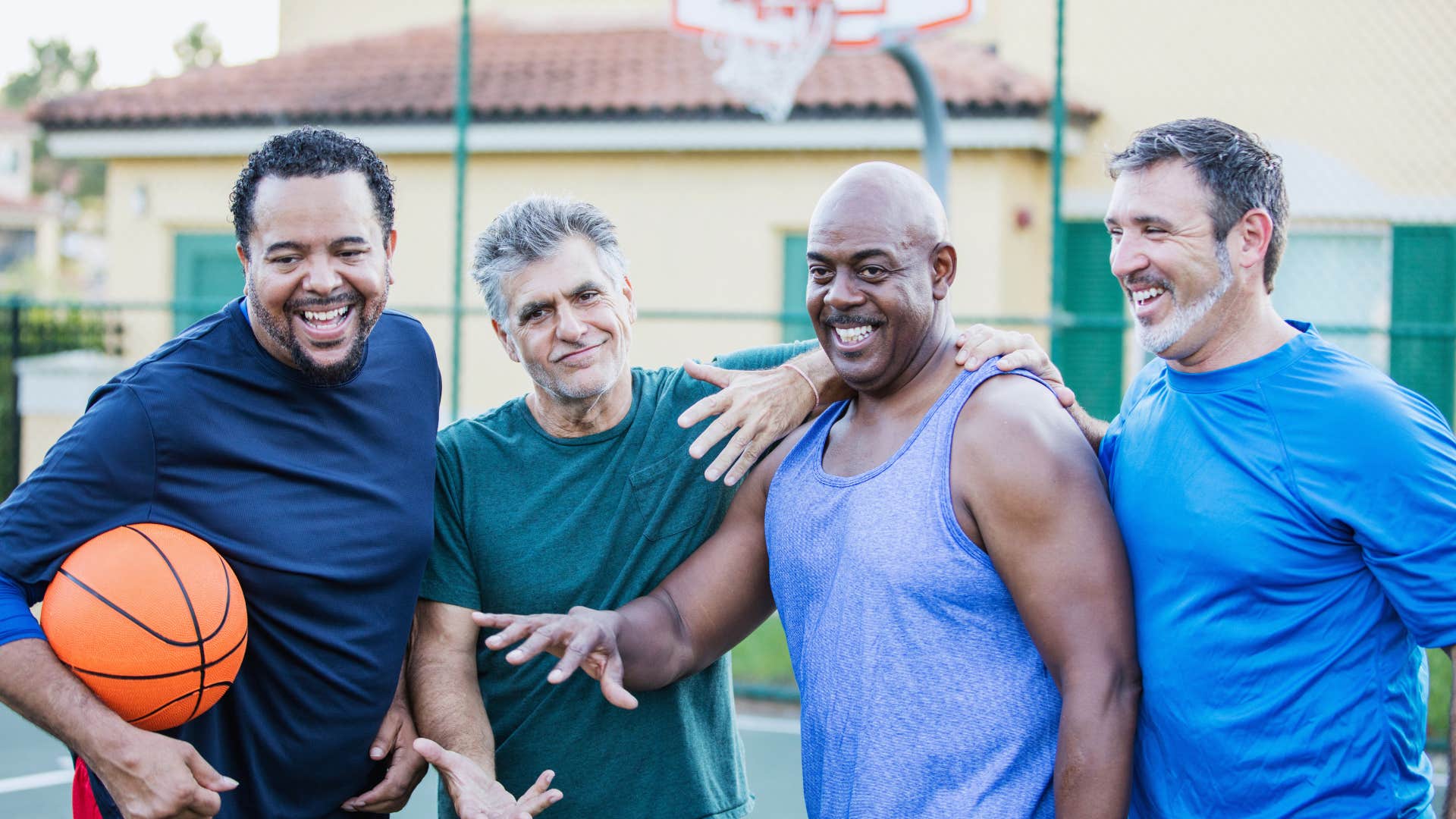People Who Stop Caring What Anyone Thinks As They Get Older Usually Have These 11 Reasons
With time comes clarity, and a whole lot less patience for pretending.
 Krakenimages.com | Shutterstock
Krakenimages.com | Shutterstock There’s something incredibly freeing that tends to happen with age. The pressure to impress others starts to fade, and where we once might have twisted ourselves into knots to fit in, be liked, or avoid judgment, we slowly begin to realize how much energy that takes and how little we ever get back. It’s not that people stop caring entirely about what others think. They just get a whole lot more selective about whose opinions matter and why. The shift is gradual, but powerful.
This change doesn’t come from nowhere. People who stop caring what anyone thinks as they get older usually have some good reasons as the result of many life experiences, changed perspectives, and a growing awareness of just how short and unpredictable life can be. People who’ve been through enough ups and downs learn that approval is fleeting and authenticity is priceless. So the older we get, the more likely we are to choose peace over people-pleasing.
People who stop caring what anyone thinks as they get older usually have these 11 reasons
1. They’ve survived enough judgment already
 adamkaz from Getty Images Signature via Canva
adamkaz from Getty Images Signature via Canva
People who’ve been judged harshly, especially when they know they were just doing their best, start to realize that criticism often says more about the critic than the target. After enough time, you start to see that the loudest opinions usually come from people who aren’t living your life, carrying your burdens, or paying your bills.
Repeated exposure to social judgment can eventually lead to a kind of resilience, especially when it doesn’t result in real consequences. This doesn’t mean people stop feeling hurt altogether, but they build better boundaries. They also learn not to internalize every passing opinion, especially when they’ve already gotten through tough situations before.
Surviving judgment tends to show you that you’re stronger than you thought, and that being misunderstood isn’t the end of the world.
2. They know that most people aren't thinking about them anyway
 Szepy from Getty Images via Canva
Szepy from Getty Images via Canva
A surprising truth that hits harder with age is that most people are far too wrapped up in their own worries to spend much time thinking about what you're doing. When you're younger, it’s easy to feel like everyone’s watching or judging your choices, but as you get older, it becomes obvious that most of us are just trying to make it through the day. That realization is both humbling and liberating.
Social psychologists refer to the tendency to overestimate how much others notice or care about us as the spotlight effect. Once people grasp that it isn't real, they stop stressing as much about how they think they are being perceived.
It’s not that they stop caring at all, but rather that they start putting their energy toward things that actually matter instead of imaginary criticism.
3. They’ve learned that people-pleasing doesn't really pays off
 Darren Baker via Canva
Darren Baker via Canva
Trying to keep everyone happy might earn you some short-term approval, but over time it can lead to burnout, resentment, and a blurry sense of self. Many people who stop caring what anyone thinks as they get older have experienced this firsthand and eventually reach a breaking point. Research in emotional exhaustion shows that chronic people-pleasing can damage self-esteem and mental health.
At some point, they start asking, “What am I getting out of this?” and if the answer is, “Not much,” the behavior shifts. The cost of constantly saying yes becomes clear, so people begin to value peace of mind over praise. That’s usually when they starting draw lines in the sand — and enforcing them.
4. They’ve grown comfortable with who they are
 Екатерина Шумских from Pexels via Canva
Екатерина Шумских from Pexels via Canva
With age often comes self-acceptance (or at least, more of than you used to have). After decades of trying to figure themselves out, many people start to feel less pressure to explain, prove, or justify who they are. They know that we've all made mistakes, hopefully learned from them, and come out the other side more grounded.
That kind of confidence doesn’t need constant outside validation. Instead of chasing trends or trying to fit into someone else’s version of success, they begin leaning into their own values.
When you like the person you’ve become, outside opinions don’t carry quite as much weight.
5. They’ve seen fads and opinions come and go
 Andrea Piacquadio from Pexels via Canva
Andrea Piacquadio from Pexels via Canva
When you’ve lived through enough waves of what’s in and what’s out, it gets easier to stop chasing them. Whether it’s fashion, politics, parenting advice, or lifestyle choices, people who stop caring what anyone thinks as they get older have noticed how quickly collective opinions shift. What was once mocked becomes mainstream. What was once praised gets reexamined.
That kind of pattern recognition creates skepticism of public approval. Eventually, they realize that chasing relevance is a full-time job they never signed up for, and one that never really ends unless you decide to stop participating.
6. They value their time more than they used to
 Ridofranz from Getty Images via Canva
Ridofranz from Getty Images via Canva
As the years go by, people become more aware of how finite time is. That awareness naturally shifts priorities. Instead of spending energy on worrying what others think, they focus more on spending time with people they love, doing things that matter to them, and protecting their peace.
People tend to be more selective about how and with whom they spend their hours as they get older. This shift makes superficial concerns feel smaller and less urgent. People learn to say no without guilt and yes with intention, and they often find that this creates more meaningful, rewarding experiences without the mental drain of constant self-monitoring.
7. They’ve experienced real loss and hardship
 Darren Baker via Canva
Darren Baker via Canva
Living through grief, illness, betrayal, or failure has a way of reshaping your perspective. When you’ve faced serious hardship, you tend to stop sweating the small stuff, including what other people think. Real life has already humbled you, and it’s shown you what actually matters.
People who’ve navigated loss often emerge with a deeper understanding of their own values and boundaries. They no longer have patience for petty judgment or surface-level expectations. Hard times don’t necessarily make people colder, but they do make them sharper about where they invest their emotional energy.
8. They’ve learned not everyone will like them, and that’s fine
 Monkey Business Images via Canva
Monkey Business Images via Canva
It’s impossible to go through life without running into people who just don’t get you. When you're younger (and if I'm being totally honest, even when you're older), that can feel devastating. But with time, people start to realize that being universally liked isn’t a requirement for happiness. In fact, trying to be liked by everyone usually ends with you not really being known by anyone.
Studies have found that people who accept social rejection as part of life tend to have better emotional regulation and higher life satisfaction. Once people realize that compatibility is more important than popularity, they stop worrying about trying to win over every room.
9. They’ve outgrown the need to be impressive
 Kali9 from Getty Images via Canva
Kali9 from Getty Images via Canva
There’s a stage in life when people really want to prove themselves in order to show that they’re smart, successful, or attractive. But over time, the need to impress others often fades. People who stop caring what anyone thinks as they get older realize that quiet confidence and kindness matter more than flashy achievements. The chase for external praise feels hollow after you’ve had a taste of it and found it doesn’t satisfy you for long.
That realization often comes from experience achieving something big and still feeling unfulfilled, or being admired publicly while feeling misunderstood privately. Research shows that people become more internally driven as they age, finding meaning in growth rather than status. What matters most becomes how life feels, not how it looks.
10. They realize that many opinions are actually based on insecurity
 Dean Drobot via Canva
Dean Drobot via Canva
Once people start noticing how often criticism is rooted in someone else’s insecurity, jealousy, or fear, it becomes a lot easier to ignore. When someone’s always tearing others down or offering unsolicited advice, it usually says more about them than it does about the target. People who’ve spent time observing this tend to take harsh feedback with a grain of salt.
Psychological projection is real, and people often offload their own discomfort by judging others without even realizing they're doing it. Recognizing this gives as you get older gives you the distance needed to not take things so personally.
When you start asking yourself, “Is this really about me?,” more often than not, the answer is no.
11. They’ve built a life that feels right for them
 Kali9 from Getty Images via Canva
Kali9 from Getty Images via Canva
At the end of the day, many people stop caring what others think as they get older because they reach a point where they've built a life that reflects their own values, not someone else’s checklist. They know what makes them happy and they’ve worked to build habits, relationships, and routines around that. Once your life feels aligned, it’s harder for outside noise to shake your confidence.
When you begin to prioritize personal meaning and authenticity, you become less concerned with external validation. That’s not to say you stop appreciating being seen or respected, but you become less likely to need it in order to feel secure — and that’s a kind of freedom that’s hard to come by when you’re younger.
Executive Editor Arianna Jeret, MA/MSW, is a writer, former family law mediator, and recognized expert on relationships and conflict resolution. Her work has been featured in Cosmopolitan, The Huffington Post, Yahoo, MSN, Bustle, Parents and more.

